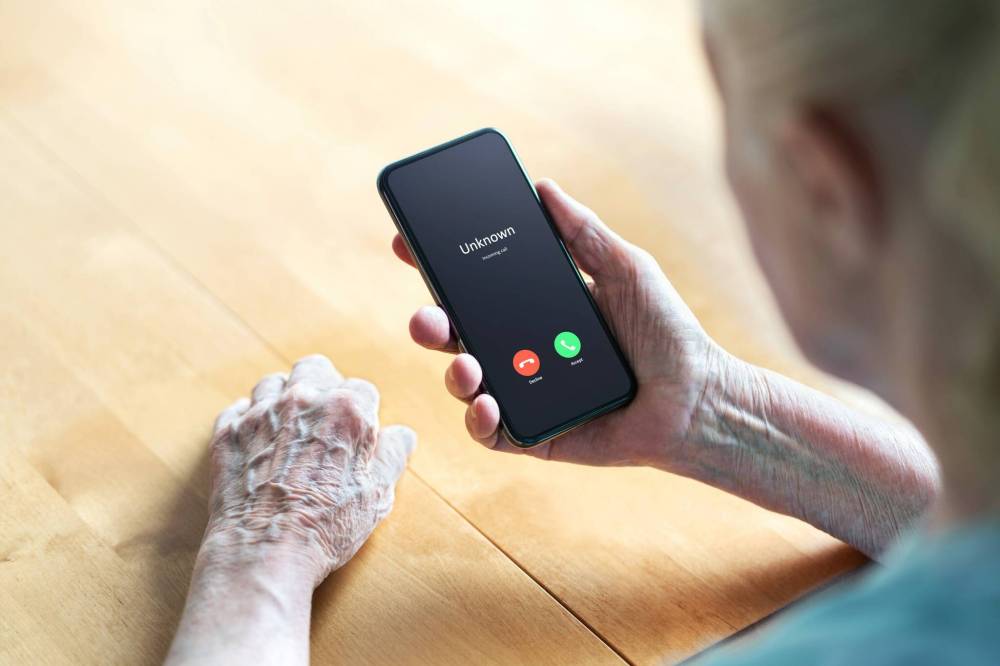Learn to recognize the ‘grandparent scam’
Advertisement
Hey there, time traveller!
This article was published 12/03/2025 (340 days ago), so information in it may no longer be current.
Scams are constantly evolving and changing, even when they are tailored to target certain segments of the population. Today we are going to discuss one of the most cruel and targeted scams, the emergency or ‘grandparent scam’.
Although parts of the scam have evolved, the basic framework remains. An older adult receives a phone call that a grandchild, child, niece or nephew is in a bind and needs money urgently. The reason could be getting arrested and needing bail, being in a car accident in which someone was injured, being sick or injured and needing funds for medical treatment or other similar approaches.
They typically start with a younger sounding voice speaking, sometimes asking “Do you know who this is?” It is common for minimal contact with this caller before you get passed to a lawyer, police officer, customs agent or doctor, who explains the situation and the need for funds to help your loved one. They will use various ploys to keep you from checking out the story with others. This could be saying there is a gag order in place, saying your loved one is embarrassed and wants to tell the family themselves or even threatening you with legal consequences.

Adobe Stock photo
While some variables of the grandparent scam have changed over time, the premise remains the same – convincing an elderly person that a family member is in danger or needs immediate help.
Then they will try to get the money. This could be asking you to deposit funds into a bitcoin ATM, sending cash through the mail or sometimes they even offer to send a courier or “bondsman” to pick up the funds. Typically, by the time the ploy has been discovered the money is long gone.
How do we protect ourselves and our loved ones from falling victim to this scam? The easiest and most effective path is educating ourselves and our loved ones on the various scams out there and recognizing a few important factor, including:
Stress response – The scammers will try and make the situation dire, with severe consequences for your loved ones. This fear can cause even the most educated people to do things they normally wouldn’t.
Time – The scammers instill a false sense of urgency and pressure you to make fast decisions. The victims think they don’t have the opportunity to verify information.
Payment method – The scammers aren’t going to ask for a cheque or bank draft. They ask for funds that can be moved quickly and are hard to trace. Most common are cash, cryptocurrency or gift cards.
How do we combat these scams?
Educate yourself and have conversations with your family and friends so they are educated as well. Make sure that your loved ones know to verify information with a trusted individual. Police, the courts and medical facilities will never ask for money directly from you, if money is owed or needed for bail. These processes occur at the medical facilities or court buildings in your area.
The most effective way to combat scams targeting our most vulnerable is by maintaining open communication.
And always remember – when in doubt, just hang up!
For more information please visit the Canadian Anti-Fraud Centre at www.antifraudcentre.ca

Winnipeg Police Service
Fraud Awareness Month
March is Fraud Prevention Month, and the Free Press Community Review is sharing stories from the Winnipeg Police Service on its annual campaign to help you recognize, report and reject fraud.
Our newsroom depends on a growing audience of readers to power our journalism. If you are not a paid reader, please consider becoming a subscriber.
Our newsroom depends on its audience of readers to power our journalism. Thank you for your support.



